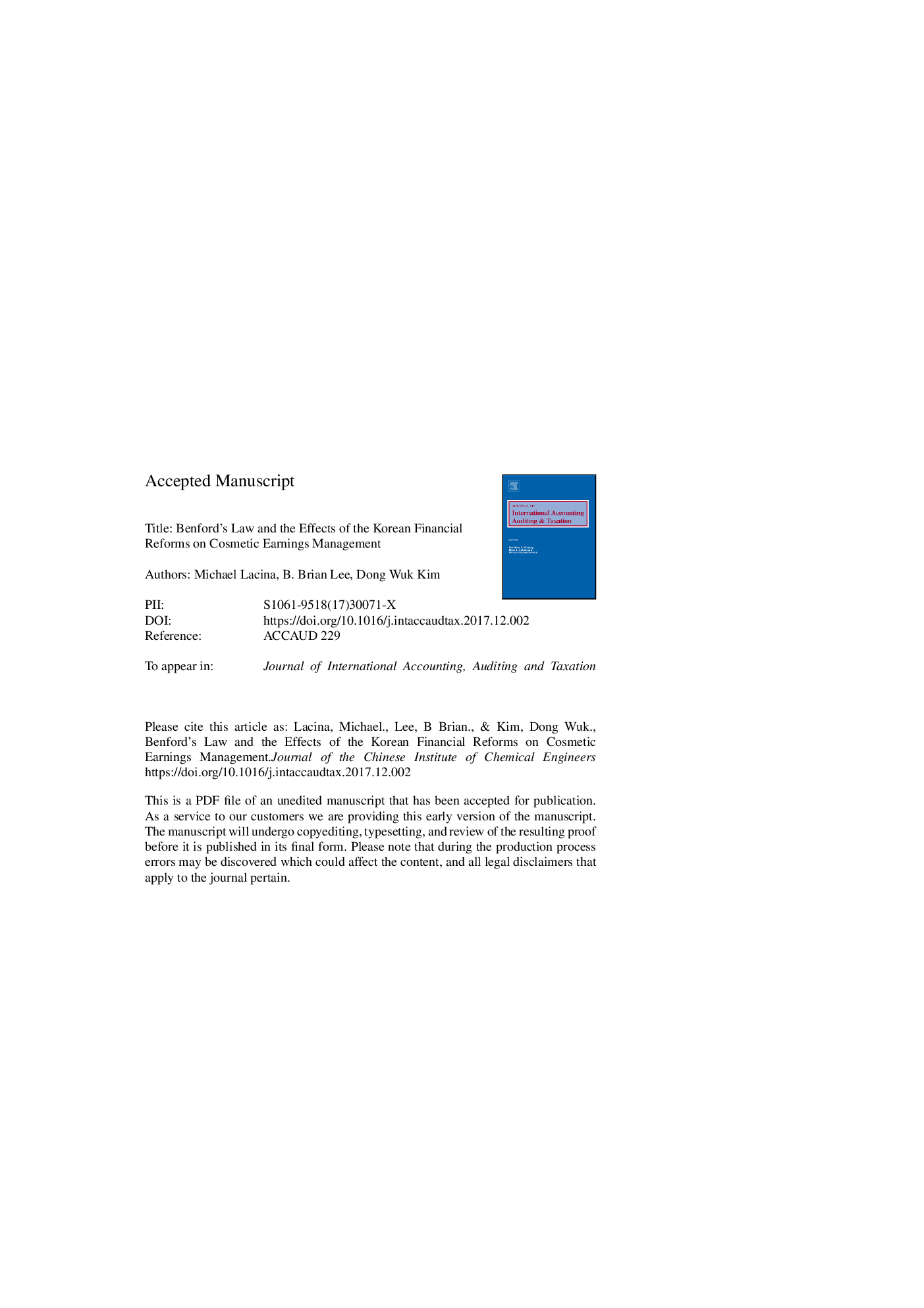| Article ID | Journal | Published Year | Pages | File Type |
|---|---|---|---|---|
| 7412997 | Journal of International Accounting, Auditing and Taxation | 2018 | 53 Pages |
Abstract
We utilize a Benford distribution to examine the earnings management change following the Korean financial reforms. We examine the propensity of Korean firms to convert high second-from-the-left and third-from-the-left digits of their net income in the post-financial reform period (2000-2012) compared to the pre-financial reform period (1990-1996). We show that managers convert high second (third) digits of positive net income to improve first (second) digits, but try to retain high second digits of negative net income to avoid an increase in first digits. However, these results are stronger in the post-financial reform period than in the pre-financial reform period. This is possibly due to an increase in performance-based evaluation and market-oriented systems following the financial reforms. Additional analyses indicate that the existence of stock options was a driver of this increase in earnings management.
Related Topics
Social Sciences and Humanities
Business, Management and Accounting
Accounting
Authors
Michael Lacina, B. Brian Lee, Dong Wuk Kim,
